Do Residential Lithium Battery Systems Make Economic Sense?

This post was written by Josh Weiner, Solar Expert Witness & Solar Engineering Expert. Mr. Weiner has been at the forefront of the solar energy industry for over 20 years and is an industry leader on solar-plus-storage engineering & design. Josh’s expertise spans both in-front of and behind-the-meter initiatives including residential, commercial, utility, grid-scale, and ev charging solar and storage applications.
Mercedes has announced the introduction of its residential battery system into the North American market. Click here to read about this.
Frankly, it’s a bit of a mystery why homeowners want these battery systems so badly because:
• They provide no economic value (yet)
• They only provide back-up support in case the grid goes down (which is a relatively uncommon problem in CA, where a lot of these systems are getting installed)
• They’re still somewhat expensive (Lithium batteries need to be replaced roughly every 5-7 years, and they degrade tremendously over their lifetime).
Anyone who owns a cell phone knows that after only a couple of short years, the capacity of those Lithium batteries tapers off quickly, at which point, it’s time to get a new cellphone.
For areas where grid outages are common, energy storage makes complete sense. For instance, conventional lead-acid (or Ni-Cd) systems have been around a long time and have lots of supporting data to justify their expense and performance. Lithium systems in these applications can cost 3-4x as much as lead-acid while only lasting 2x as long. Not a good trade-off of price for performance.
Residential Lithium systems is a perfect example of how NOT to drafting lithium systems. Lithium batteries prefer “power” applications (say, automotive, consumer products, demand reduction, frequency control, etc.) with frequent charge / discharge cycles at high “C” rates in the middle state-of-charge (SOC) of the battery (say, between 30-70% SOC). However, residential back-up applications keep the Lithium batteries full for most of the year, except for that one day or one week period when the battery is slowly drained across its entire SOC range. This is precisely the type of application that kills a Lithium battery the quickest (Lithium doesn’t like to sit at full SOC for long, it prefers fast (not slow) discharge cycles, and it prefers to stay between 30-70% SOC, thereby limiting its usability / capacity). And this is where lead-acid batteries shine – they like to sit at “full” SOC, they like to discharge slowly, and when discharged, they like to be discharges through their entire SOC (0-100%).
So why are so many companies selling Lithium batteries into the residential market?
Over-supply. Companies like Tesla, Mercedes, Nissan, etc. are looking for secondary markets to sell their over-stocked battery supplies into, which makes residential storage an easy target. After all, these companies are already targeting residential consumers for purchasing electric vehicles. Naturally, stationary storage is an easy “in” for these companies to reach into the consumer’s home to up-sell more products and services to their target customers. And, by offering “capacity maintenance agreements” (CMA’s), which are sugar-coated contracts that lock you into a long-term battery purchase term, these companies keep you coming back to them to buy more and more batteries. Ultimately, this is an inefficient way to serve a market that needs cheap, long-term, off-grid energy. Visit this link to watch this SNL skit that does a good job explaining this principle.
Stay tuned for much better batteries in the near-future (<1 year from now, tops). There is a lot of promise with non-Lithium chemistries like flow batteries, zinc-based cathodes, etc., which means that Lithium’s offering in the residential space will undoubtedly be replaced by long-duration, slow-degradation, less-expensive batteries that are specifically designed for these applications to increase value. SepiSolar will share all the good details with you on these newer, more efficient, less-expensive, and higher-performing batteries once more information enters the public domain.
Stay tuned for more insight in SepiSolar’s monthly newsletters by signing up here.


